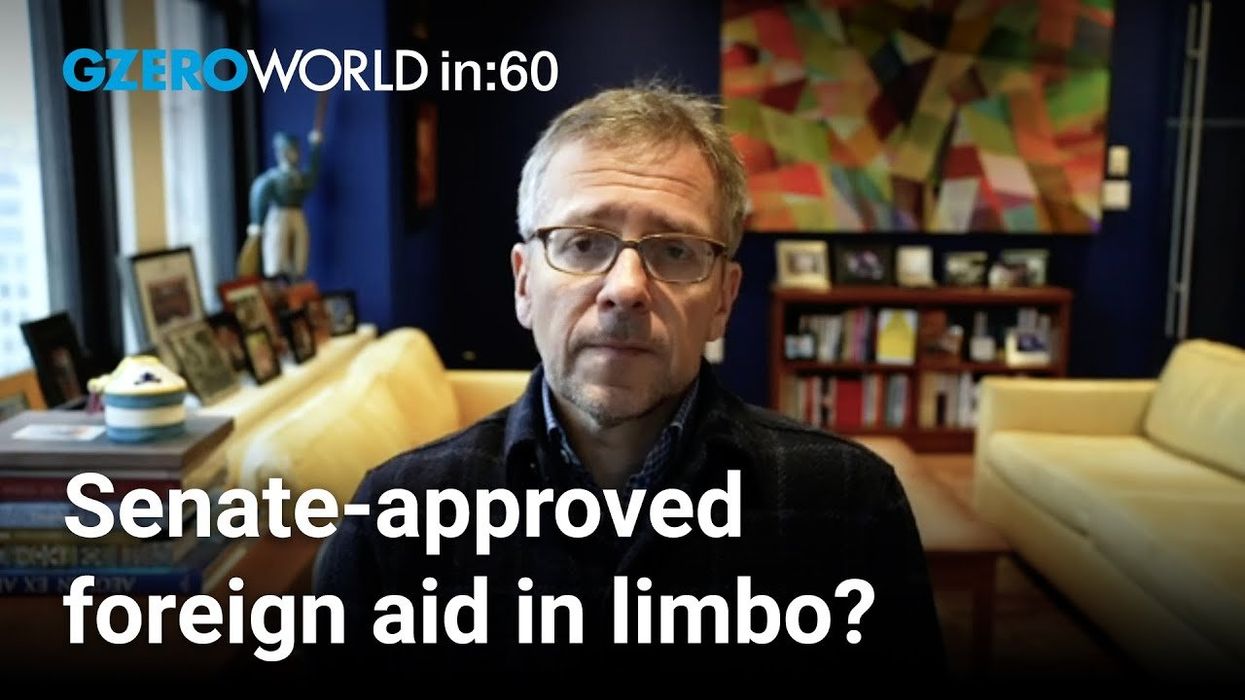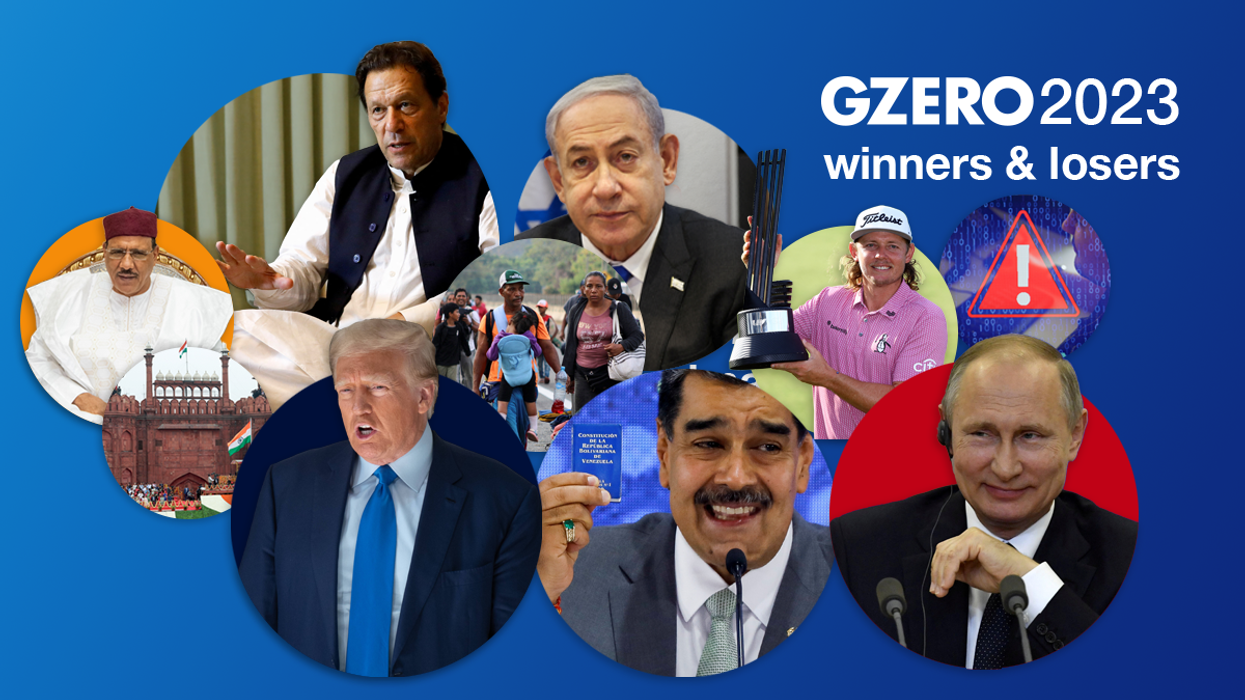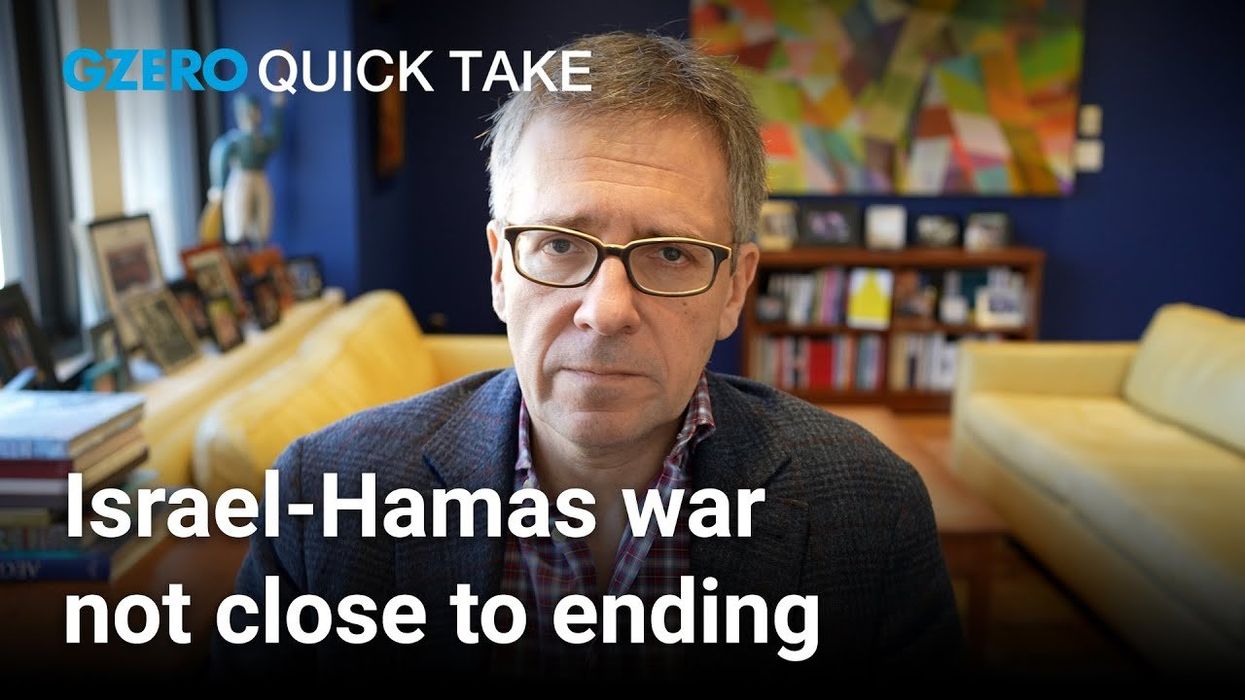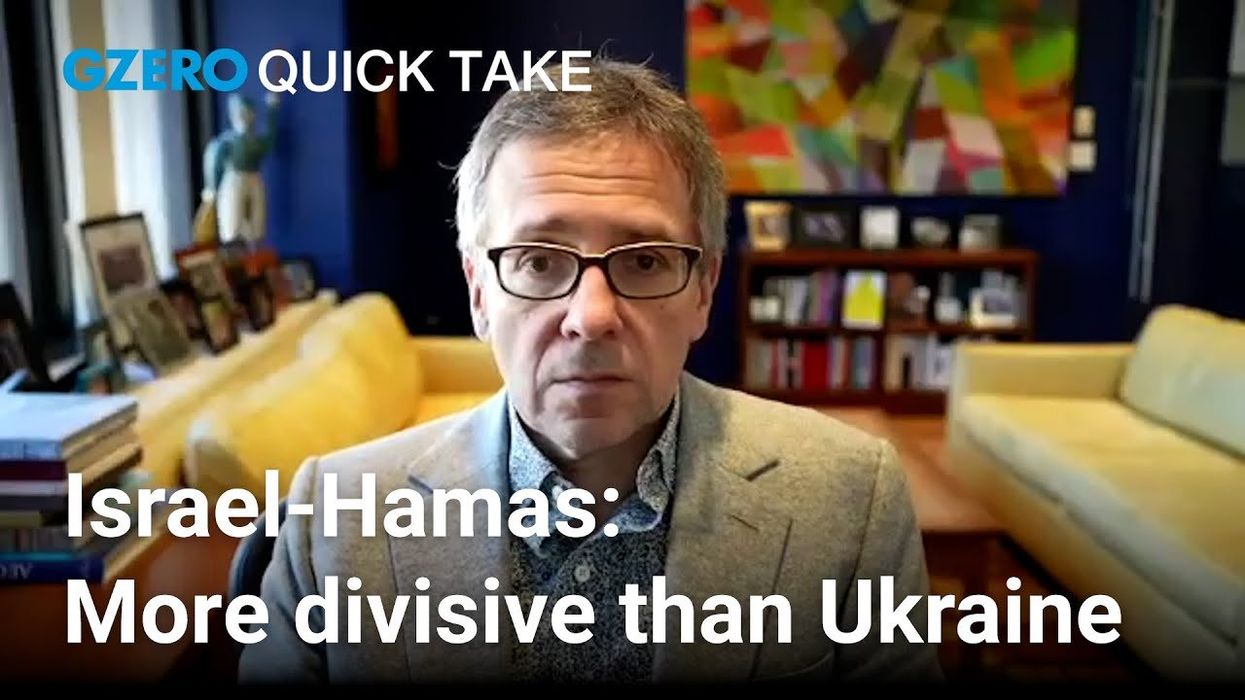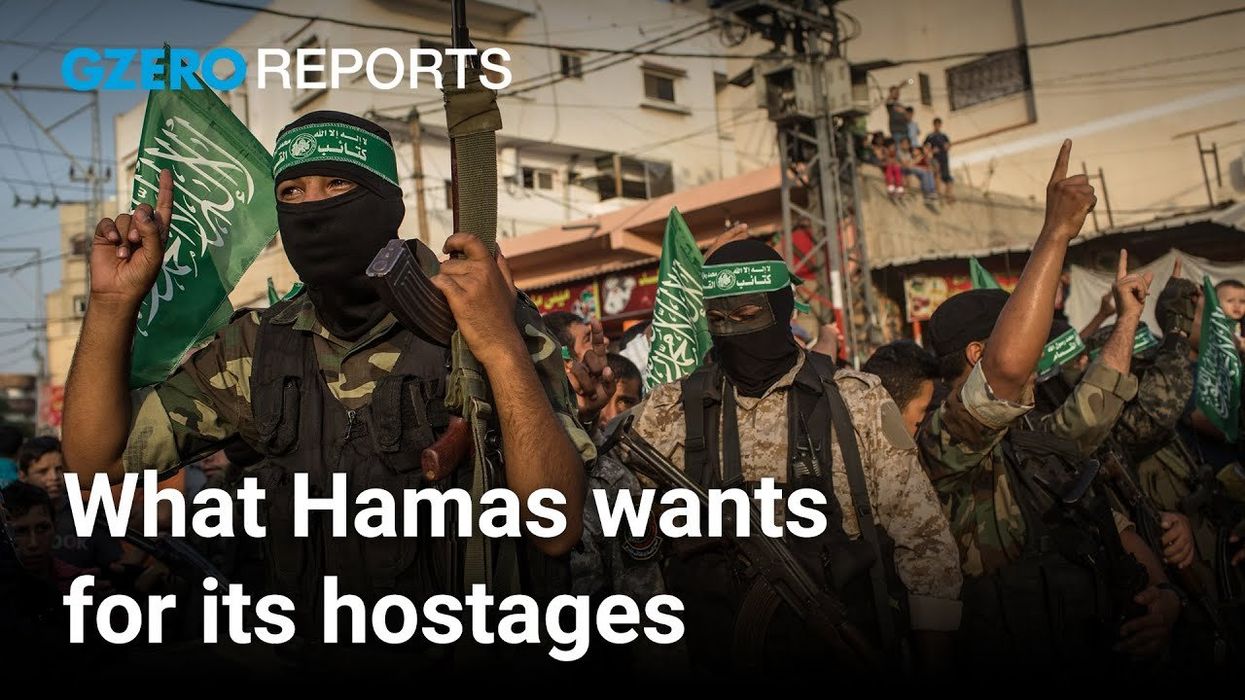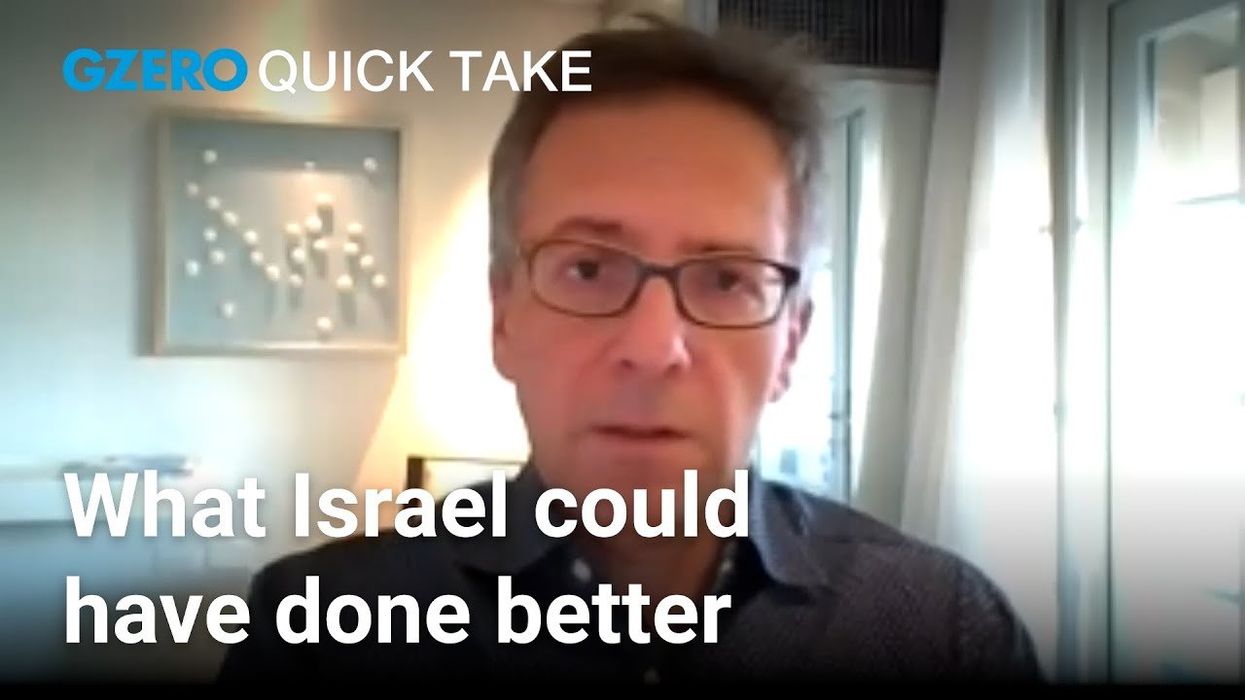ask ian
US aid for Israel & Ukraine hangs in the balance
Will the House pass the Senate-approved aid package for Ukraine and Israel? How likely will Israel proceed with a ground invasion of Rafah in Gaza? What are the wider implications for the Indonesia presidential election? Ian Bremmer shares his insights on global politics this week on World In :60.
Feb 13, 2024
